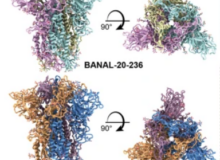Jonathan Latham, PhD and Allison Wilson, PhD
A Monsanto/Cargill joint venture has quietly withdrawn its application for high-lysine transgenic corn after EU regulators on the European Food Safety Agency (EFSA) GMO panel raised questions about its safety for human consumption.
Made by Renessen LLC, LY038 would have been the only high lysine corn available and had already been approved for food use in Japan, S. Korea, Canada, Australia and New Zealand, and for cultivation in the US, although it has never been grown. Although LY038 is not intended for human consumption, the likelihood of genetic cross-contamination means that EU food approval was necessary for commercial growing of the crop anywhere.
Withdrawal therefore means that transgenic high-lysine corn has been abandoned as a commercial proposition, at least for the foreseeable future. Withdrawal was not announced by any of the companies involved but is indicated on the GMO Compass website and confirmation was obtained by the campaigning group GM-free Cymru. In a letter obtained by GM-free Cymru, Renessen claims that withdrawal was “for commercial reasons”. These were not specified and none of the commercial swine experts we contacted could tell us what those reasons might be.
LY038 corn contains the enzyme DHDPS (dihydrodipicolinate synthase) from Corynebacterium glutamicum, which leads to the accumulation of approximately 50-fold higher levels of free lysine in the maize kernel. It is intended as an alternative to lysine supplementation, in particular for pigs feeding on a corn/soymeal- based diet. The market size for lysine was estimated at 450,000 metric tons in 2000.
The specific safety questions raised by the regulators were principally over the safety of LY038 when cooked. LY038 contains very high levels of free lysine. Lysine is known to react on heating with sugars to form chemical compounds called advanced glycoxidation endproducts (AGEs) that are linked to numerous diseases, including diabetes, Alzheimer’s disease and cancer. Member states, whose comments must be considered by the EFSA GMO panel, decided that further experiments were required before approval could be given. As well as questions over these lysine conjugates, questions were also asked about unexplained chlorosis in experimental trials and unexplained poor performance of chickens fed LY038.
A second category of questions raised was whether appropriate controls were used by the applicant. Some consider that this goes to the heart of the scientific nature of the approval process. The Codex Alimentarius guidelines indicate that an otherwise genetically identical cultivar, minus the transgene, is the appropriate control for a GMO safety experiment. According to Jack Heinemann, director of the The Centre for Integrated Research in Biosafety (INBI) and one of the authors of a critique of LY038 “EFSA enforced the Codex comparator. I have not seen an application since 2002 that met the Codex comparator standard”. No matter what the experiment “ If you don’t have a proper control you can’t draw valid scientific conclusions” concurs Doug Gurian-Sherman, senior scientist at the Union of Concerned Scientists.
Withdrawal of LY038 corn will disappoint the industry not only because it is the first GMO to be withdrawn after safety questions were raised but also because withdrawal comes just as the agricultural biotechnology industry is attempting to demonstrate that it can deliver traits other than herbicide resistance and insect resistance. Especially, the industry would like to diversify its portfolio of traits, towards those with value to end-users and away from traits with value only to industrial agriculture. The concern, however, is that these more complex traits may not only prove harder to come by, but, as happened here, also may generate novel and complex safety concerns.



